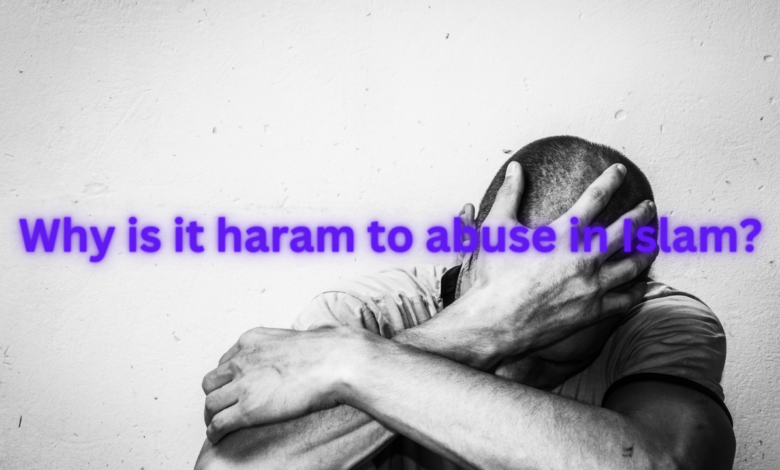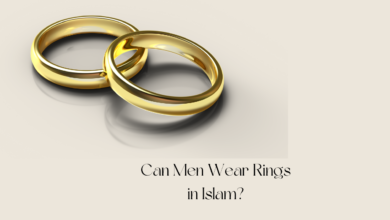
Why is it haram to abuse in Islam?
Abuse in Islam can encompass various forms, including physical violence, verbal insults, emotional manipulation, and any action that harms or violates the dignity of another individual.

Introduction
Islam is a religion that promotes peace, compassion, and justice. One of the fundamental principles of Islam is to treat others with kindness, respect, and dignity. As such, the act of abusing others, whether verbally, physically, or emotionally, is strictly prohibited in Islam. In this article, we will explore the reasons why abuse is considered haram (forbidden) in Islam, and how the religion encourages a culture of respect and empathy.
Respect for Human Dignity
In Islam, every human being is considered a creation of Allah (God), and as such, they are entitled to a certain level of respect and dignity. The Quran emphasizes the sanctity of human life and the inherent worth of each individual. Surah Al-Isra (17:70) states, “And We have certainly honored the children of Adam and carried them on the land and sea and provided for them of the good things and preferred them over much of what We have created, with [definite] preference.”
Abusing someone, whether through physical violence, verbal insults, or emotional harm, disregards this fundamental principle of respect for human dignity, making it a grave transgression in Islam.
Also check.
- Who became a Muslim during the reign of Prophet Muhammad?
- What was the first battle that Prophet Muhammad fought?
- Which of his children did Prophet Muhammad love the most?
- What Is Islamism
- Are Bitmoji haram in Islam? why? Guide 2023
The Golden Rule
Islam promotes the concept of the Golden Rule, which is the idea of treating others as one would like to be treated. The Prophet Muhammad (peace be upon him) said, “None of you truly believes until he wishes for his brother what he wishes for himself.” (Sahih al-Bukhari) This Hadith underscores the importance of empathy and kindness towards others.
Abuse goes against the Golden Rule, as it involves inflicting harm upon others, which one would not want for themselves. Islam encourages believers to be empathetic and considerate, fostering a sense of harmony and compassion within society.
Resolving Conflicts Peacefully
In Islam, conflict resolution is encouraged through peaceful means, such as dialogue, arbitration, and compromise. The Quran provides guidance on how to approach conflicts in Surah Al-Hujurat (49:11), stating, “O you who have believed, let not a people ridicule [another] people; perhaps they may be better than them.” This verse advises against mocking or belittling others, even in times of dispute.
Abuse, whether it’s in the form of physical violence or hurtful words, only escalates conflicts and leads to further harm. Islam advocates for the use of peaceful methods to resolve differences, reinforcing the importance of avoiding abusive behavior.
Accountability Before Allah
In Islam, believers are taught that they will be held accountable for their actions on the Day of Judgment. Any form of abuse, whether it is committed in public or private, will be subject to divine judgment. This belief serves as a powerful deterrent against abusive behavior, as individuals are reminded of their moral and spiritual responsibilities.
Conclusion
Abuse in any form is strictly prohibited in Islam due to its fundamental principles of respect for human dignity, the Golden Rule, peaceful conflict resolution, and the belief in accountability before Allah. Islam promotes a culture of empathy, kindness, and compassion, encouraging believers to treat others with the same respect and care they would expect for themselves. By adhering to these principles, Muslims can contribute to a more just and harmonious society, in line with the teachings of Islam.
FAQS-Why is it haram to abuse in Islam?
What does Islam consider as abuse?
Abuse in Islam can encompass various forms, including physical violence, verbal insults, emotional manipulation, and any action that harms or violates the dignity of another individual.
Why is abuse considered haram (forbidden) in Islam?
Abuse is considered haram in Islam due to its violation of fundamental Islamic principles, such as respect for human dignity, adherence to the Golden Rule, the promotion of peaceful conflict resolution, and the belief in being accountable for one’s actions before Allah.
What is the Golden Rule in Islam?
The Golden Rule in Islam is the principle that encourages treating others as one would like to be treated. It is exemplified in the Hadith of the Prophet Muhammad (peace be upon him) that states, “None of you truly believes until he wishes for his brother what he wishes for himself.”
How does Islam promote peaceful conflict resolution?
Islam promotes peaceful conflict resolution through methods like dialogue, arbitration, and compromise. The Quran advises believers to avoid ridicule and belittlement during disputes and encourages efforts to reconcile differences amicably.
What is the role of accountability in preventing abuse in Islam?
Belief in accountability before Allah is a powerful deterrent against abusive behavior. Muslims believe that they will be answerable for their actions on the Day of Judgment, motivating them to uphold moral and ethical standards, including refraining from abuse.
How can adhering to Islamic principles create a more harmonious society?
Adhering to Islamic principles, such as respect, empathy, and peaceful conflict resolution, contributes to a more just and harmonious society by fostering mutual understanding and compassion among individuals. It promotes an environment where people treat each other with kindness and respect.
Are there specific verses or Hadith that address abuse in Islam?
While there are no specific verses or Hadith that explicitly use the term “abuse,” various Islamic texts contain teachings and guidance on respecting the dignity of others, resolving conflicts peacefully, and promoting empathy and kindness.
Is there a punishment for those who commit abuse in Islam?
The severity of punishment for those who commit abuse can vary depending on the specific circumstances and the legal system of the country. In Islamic jurisprudence, penalties for criminal acts are typically determined by Islamic law, or Sharia, but the application can differ across different Muslim-majority regions.
How can Muslims contribute to a more peaceful society?
Muslims can contribute to a more peaceful society by embodying Islamic values, such as respect, empathy, and compassion, in their daily lives. This includes refraining from abusive behavior, resolving conflicts peacefully, and being proactive in promoting understanding and harmony within their communities.
Is there support within the Muslim community for victims of abuse?
Many Muslim communities and organizations offer support for victims of abuse, including counseling, legal assistance, and shelter services. Prominent scholars and leaders have also spoken out against abuse, emphasizing the importance of protecting individuals from harm and injustice.




